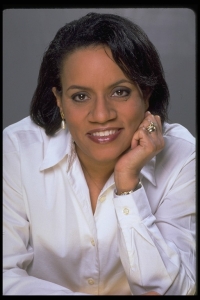 Cheryl R. Carter is a former special needs teacher and the founder of Organized Kidz, an organization that assists special needs children with organization and study skills.
Cheryl R. Carter is a former special needs teacher and the founder of Organized Kidz, an organization that assists special needs children with organization and study skills.
Here, she answers some questions about her new book, Organize Your ADD/ADHD Child: A Practical Guide for Parents.
How did this book come about?
When I first began organizing families with children I noticed that children who were gifted with AD/HD were a bit different. Sometimes the traditional organizing methods did not apply to them. They needed to have their attention engaged. I also saw many parents getting angry with these children thinking they were purposefully being belligerent or uncooperative simply because they could not follow the rules. Many traditional methods do not work with AD/HD children. For instance, many chore charts are too visually stimulating or overwhelming for the attention challenged child. Instead the chore chart needs to be focused with no distractions. Too many chores on a chore chart will also overwhelm the AD/HD child.
As a former special needs teacher, I pointed this out to many of the parents I worked with and most told me that there were no organizing books on the market that address AD/HD children. This is a compilation of ideas that worked with the families I have worked with over the years, and it is primarily for busy and overwhelmed parents, some who may be struggling with organization issues themselves. The methods in this book are incredibly easy and practical and I think most parents will find this book helpful. This is especially true of parents who have AD/HD themselves.
Why do children with ADD/ADHD have so much trouble getting organized?
AD/HD children are not habitually disorganized as some children may be. They are organically, albeit clinically disorganized. The approach to organizing them has to be specific and target their wandering and/or hyper-focused minds. For instance, as I said these children find it hard to focus in on one task and thus a chore chart can be meaningless to an AD/HD child because they cannot focus in on the task. Again, their focus issues need to be addressed. You can lecture, scold and bribe an AD/HD child but you will still have to deal with the deal with the fact that the child is not predispossed to organizing.
What is the F.I.R.S.T. method and why does it work so well with ADD/ADHD children?
The FIRST method employs a variety of elements that AD/HD children respond to, such as fun. Since AD/HD children struggle with boredom, this method shows the parents how to make organizing enjoyable. When organization is made fun all children, including attention-challenged children, naturally gravitate to it. Portions of these methods may be used with all children but it is especially appropriate for AD/HD children.
What is the biggest problem parents face in trying to organize their ADD/ADHD child? What about teachers?
The biggest challenge parents face is getting the child to take ownership over their own organizing and time management issues. Most parents will not say it but they worry that they’ll always have to be responsible for their AD/HD children. Teachers will also find the ideas in this book useful because given the size of their classes, they just cannot deal with all the seeming forgetfulness of AD/HD children. There are many books on the market on theory. This book offers practical solutions.
For overwhelmed parents, what is the very first step in organizing a child with ADD/ADHD?
The first step is to organize your child’s environment and then begin to organize the problem areas. Make sure the child’s environment is structured and, yes, parents will learn how to organize themselves. There is an entire chapter on organizing your home.
In teaching organization skills to a child with ADD/ADHD, is it difficult to find the line between perfection and ‘good enough’?
Great question. Our time management and organizing strategies must serve us; we should never be a master to any system or method. This book encourages parents to adopt what will work for them without expecting perfection.
Visit www.ADD123.org for more information about Cheryl and her work with ADD/ADHD children.
Copyright © Jessica Kingsley Publishers 2010.